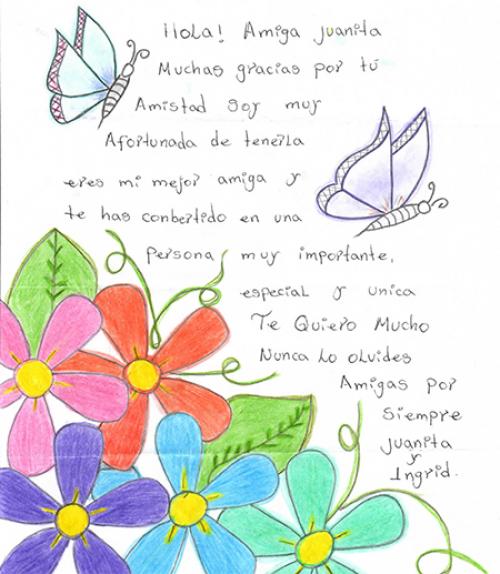
 Department Homepage
The College of Arts & Sciences
Department Homepage
The College of Arts & Sciences
Students petition for refugee’s release from detention center
A group of Cornell students have launched a campaign to free a Salvadoran woman in a detention center whom they befriended through a class focused on refugees and immigration.




